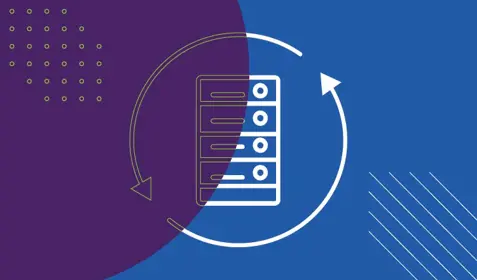Apple’s CEO Tim Cook recently published a letter outlining his reasons for opposing a court order to unlock a password-protected iPhone that belonged to one of the terrorists in the San Bernardino attacks. In doing so, Cook has triggered what will likely cause a ripple effect of privacy versus security debates across the technology industry.
We at Carbonite support Apple in fighting this court order, and call on our customers and peers to offer their support as well.
To be clear, we have the highest respect for the FBI and its mission to combat terrorism. We agree with Apple that the FBI’s request is well-intentioned and would similarly comply with reasonable warrants if they would help mitigate criminal activity. However, we believe that developing a broad-reaching backdoor is the equivalent of handing today’s criminals the keys to the kingdom.
Let me explain. If this backdoor is created and accidentally leaked, it would serve as a master-key for criminals to millions of iPhones -- a master-key that could be quickly distributed globally. We are very surprised that the FBI is asking Apple to create such a broad-reaching solution, when there are certainly safer ways to access this data.
Ultimately, we believe that forcing any technology company to compromise the integrity of its products undermines the very purpose of its existence and, in this case, runs too great a risk of unnecessarily compromising the right to digital privacy of millions of people.
Carbonite believes it’s our moral obligation to uphold trust, security and economic vitality, while supporting appropriate efforts to ensure national security.
TRUST
Businesses like Apple, Google and other leading cloud companies cannot be successful without customer trust. In the past 10 years, we’ve made great strides in demonstrating to the public how the cloud enables security.
However, if Apple is forced to build a back door into its operating system that allows the government or others to broadly access previously secure data, the public will lose trust in the cloud vendors that have protected their data, ensured remote access, and made their lives easier.
In addition to consumer trust, corporate reputation is at risk. The NSA scandal that broke with Edward Snowden’s release of confidential documents greatly degraded trust in our government and companies. Since June 2013, businesses have more clearly defined their data security practices, which has benefitted the public and helped rebuild trust. However, it will not be as easy to recover from another government scandal. One incident can be chalked up to bad judgment, but a second one denotes a troubling pattern.
SECURITY
The most obvious security concern related to the FBI’s demand is that the software could get into the wrong hands. While it’s easy for the FBI to say this is a one-time request, it’s fair to be concerned that the software could be stored for further use – which puts it at risk of compromise and broad usage. In the past year alone, the personnel records and background checks of 21.5 million government workers were exposed by Chinese hackers, information about 330,000 US taxpayers was accessed due to the IRS’s poor authentication practices, and a hacker gained access to employee information of 29,000 FBI and Homeland Security employees. With this kind of track record, such a broad master-key type solution creates wide and unnecessary exposure.
ECONOMY
A major corporation folding to an overreaching request from a federal agency could irreparably damage our country's reputation in the global business economy. When the NSA surveillance and data access program broke in June 2013, many companies, including Carbonite, found it more challenging to do business internationally. German companies, for example, were extremely hesitant to partner with US companies due to the public perception that “all US businesses provide private information to the NSA.” If the FBI’s demand is upheld for Apple to provide this broad backdoor – under the All Writs Act of 1789, no less – it will validate international concerns about doing business with US companies, putting American jobs and livelihoods at risk.
We ask our peers in the technology world to take a moment and consider the implications of a world in which Apple is forced to comply with the FBI’s demand for a broad-reaching backdoor to one of the most widely used personal devices. We may very well look back on this incident as a turning point in our country, hopefully one that will restore confidence in our government and companies and result in making our country even stronger.










